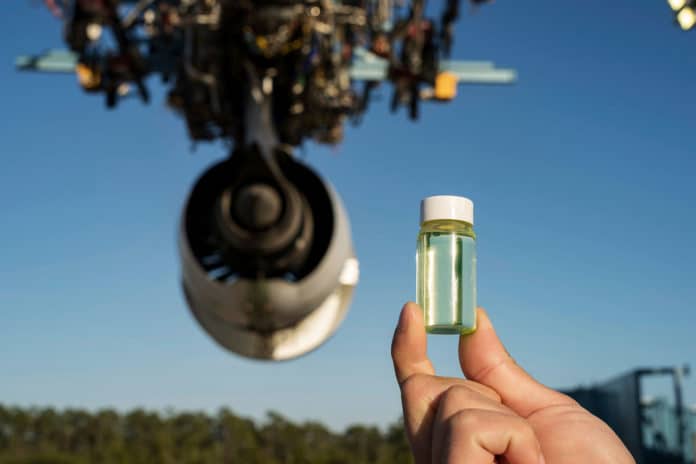Pratt & Whitney has signed a memorandum of understanding (MOU) with Air bp on use of sustainable aviation fuel (SAF) blends at up to 100% in Pratt & Whitney engine testing and research. The agreement with the SAF producer reflects Pratt & Whitney’s commitment to supporting the aviation industry’s ambitious goal of reaching net-zero CO2 emissions for air travel by 2050.
Under this contract, the two companies will work together to explore the viable supply to Pratt & Whitney of SAF blends with up to 100% SAF for engine and propulsion systems testing through 2024. The parties also aim to collaborate on researching the performance of 100% SAF in propulsion systems to provide insights and data into fuel performance and emissions reductions.
Combined with continuous technological advancements in aircraft and engine efficiency, SAFs have a critical role to play in decarbonizing air travel by reducing dependence on fossil-based fuels. Pratt & Whitney has been involved in the testing and certification of SAF for more than a decade. So far, the authorities have only approved the use of sustainable aviation fuel as a “drop in” fuel, blended up to 50% with conventional kerosene fuel. Now, the company is working towards validating that its engines can operate with 100% SAF, which would significantly reduce CO2 levels.
According to the company, its GTF engine family has already saved operators 600 million gallons (two billion liters) of fuel and has avoided more than six million metric tonnes of CO2 since 2016. Besides enabling greater use of SAF, Pratt & Whitney is developing a range of technologies to drive further reductions in CO2 emissions from future aircraft designs, including more advanced gas turbine technologies, hybrid-electric systems, and hydrogen fuel technologies.
“The commercial aviation industry must use multiple approaches when it comes to addressing the challenges of sustainable aviation. One immediate opportunity is to radically reduce our dependence on fossil fuels while we continue to improve engine efficiency,” said Graham Webb, Chief Sustainability Officer at Pratt & Whitney. “Neat SAF from a major integrated energy company that is highly focused on SAF initiatives enables the evaluation, testing, and validation needed to ensure that our engines are fully capable of operating with 100 percent SAF.”
